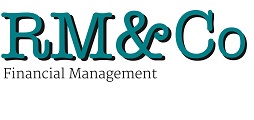Preparation is key to stress-free home buying
A recent industry survey showed that 41% of people feel stressed by the mortgage process, taking the fun out of looking for a new home. This needn’t be the case and by following these top tips you can stay in control, save money and enjoy the experience.
SAVE, SAVE AND SAVE
In most cases, the bigger the deposit you can put down and the less you need to borrow, the lower your interest rate is likely to be. Don’t forget that your savings will also need to cover other charges like legal fees and survey costs, so budget for them to avoid any nasty surprises.
MONTHLY OUTGOINGS
It pays to take a long hard look at your income versus your outgoings; any lender considering your mortgage application will expect you to be on top of your bills and to be able to afford your monthly mortgage payments. Check your standing orders and subscriptions and cancel any you can manage without. Also, keep a keen eye on how much you spend on luxuries like entertainment and meals out.
CHECK YOUR CREDIT SCORE
Lenders will expect you to have a healthy credit score. A higher score usually means you are a lower risk; the more points you score the better the chances that you’ll get credit at better rates.
GET PROFESSIONAL ADVICE
Getting advice will save you time, money and stress. We are on your side, have access to a wide range of mortgage deals, know the industry and can offer useful advice on all aspects of the home buying process. We can help you get an in-principle decision from a lender, which gives a seller the confidence that you are a serious purchaser.
KNOW YOUR ESTATE AGENT
First-time buyers with mortgage offers in place are attractive to sellers as they can proceed more quickly than another buyer who has yet to sell. Make sure that the estate agent is aware of your position, so they can pass this information on to sellers. Keep in regular contact and build a rapport with the agent.
DON’T FORGET THE SURVEY
Once you’ve found somewhere you want to buy, make sure you get a professional survey. A surveyor will identify structural problems that could be expensive to remedy.
1Trussle, 2018
A mortgage is a loan secured against your home or property. Your home or property may be repossessed if you do not keep up repayments on your mortgage or any other debt secured on it.
It is important to take professional advice before making any decision relating to your personal finances. Information within this document is based on our current understanding and can be subject to change without notice and the accuracy and completeness of the information cannot be guaranteed. It does not provide individual tailored investment advice and is for guidance only. Some rules may vary in different parts of the UK. We cannot assume legal liability for any errors or omissions it might contain.
Levels and bases of, and reliefs from, taxation are those currently applying or proposed and are subject to change; their value depends on the individual circumstances of the investor. No part of this document may be reproduced in any manner without prior permission. Information is based on our understanding of taxation legislation and regulations. Any levels and bases of, and reliefs from, taxation are subject to change.
A mortgage is a loan secured against your home or property. Your home or property may be repossessed if you do not keep up repayments on your mortgage or any other debt secured on it.
Tax treatment is based on individual circumstances and may be subject to change in the future.
